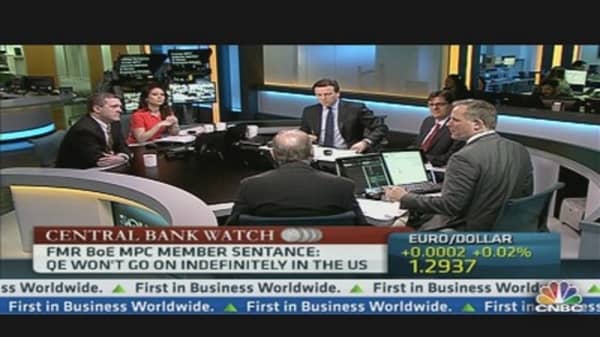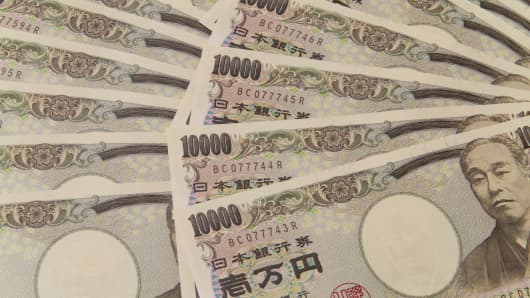St Louis Federal Reserve Chairman James Bullard would not comment on the strength of the dollar, but told CNBC on Friday: "Countries outside the U.S. have to run their own exchange rate policy as they wish."
"The notion is that if you allow a flexible exchange rate, then you can have your own independent monetary policy in your country, regardless of what we are doing in the U.S. And that's still the right vision for how this should work," he said. "But a lot of countries try to manage to the dollar, and then they are importing U.S. monetary policy."
(Read More: Japan Bulls Unwavered by Stock Market Rout)
Meanwhile, Andrew Sentance, a former member of the Bank of England's Monetary Policy Committee, told CNBC it was harder than expected for central banks to control their country's currencies.
"Central banks actually find it very difficult to move currencies in the way that they would like. When I was on the Bank of England's Monetary Policy Committee I thought the pound was too weak – I think it is probably still too weak – but getting sterling to move up and help control U.K. inflation is quite difficult," he said on Friday.
However, Bloom said policy makers had recently had "profound" success in manipulating currencies.
"Historically it has not always been such an easy ride, and attempts to withstand market pressure have not been straightforward," he said.
"This time around, part of the reason why central banks have had greater success is because the political pressure to provide economic prosperity has been so pronounced."
As such, Bloom said the dollar's rally would continue. HSBC has revised its 2013 currency forecasts for the dollar from 1.35 euros to 1.24 euros, and from 1.48 pounds to 1.45 pounds.
"If anything, the risks are for even greater dollar strength than we have pencilled into our new forecast profiles," Bloom added.
"Our dollar bullishness does not rely on an early tapering or an end to U.S. QE3 (the third round of asset purchases), but if the Fed acts sooner than we expect, then the dollar will capitalize. The dollar has already risen, but this is just the beginning."
(View Slideshow: The Biggest Carry Trades)
- By CNBC's Katrina Bishop, follow her on Twitter @KatrinaBishop





